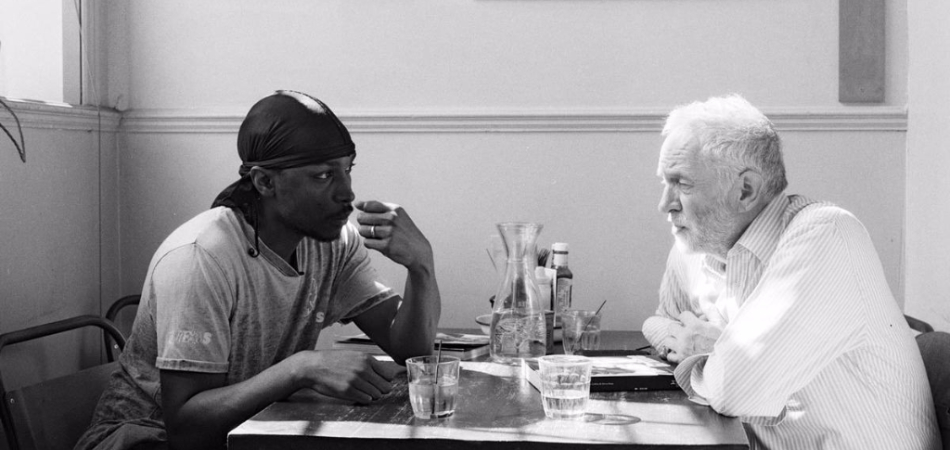
How can brands use music to overcome generational tensions?
Joanna Barnett, Strategy Director at Truant, on the power of music to bring people closer together and broaden a brand’s appeal.
By aligning themselves with the voices of their audiences, brands are able to become more actively involved in real societal issues, ones that directly affect their customers, and take on a more visible role within their community.


An old proverb states that “it takes a village to raise a child”. It focuses on the importance of community in the growth and development of children and young people. It’s the proverb that Sadiq Khan quoted earlier this month on launching his London Needs You Alive anti-knife crime campaign.
And it’s a proverb whose sentiment rings true when we look back over this year, not just within the advertising and communications industries but across much of popular culture. From the Women’s March that went global in January, to the recent election of Doug Jones over Roy Moore in Alabama and the success of Labour’s infultration into the world of grime during the general election. Communities or at least the strength of collective thinking, have proven that when united, people can make all the difference.
Music, in all it’s forms, has power to bring people together. Through music, we can tell a complex and emotional story in a very short space of time to a very specific audience. Over the last two decades, grime and spoken word have grown from the underground world of pirate radio stations to a popular and important way for young people to express themselves. These are young people making music for their peers and speaking directly to their contemporaries.
In recent years, spoken word has been co-opted in many an advert from McDonald’s to Nationwide and Virgin Media. While historically, spoken word has been an activist’s tool of resistance, brands, charities and educational bodies have commodified the art to reach a younger, more discerning audience.
By aligning themselves with the voices of their audiences, brands are able to become more actively involved in real societal issues, ones that directly affect their customers, and take on a more visible role within their community. Because it takes a village to raise children, solve problems and ultimately, make a real change.
Over the course of 2016, knife crime in England and Wales has increased by 14%. The past 12 months alone have seen a 31% increase while, in London, 40 people under the age of 25 have died in stabbings this year.
As a result of these horrific statistics, and off the back of research done with communities and young people most affected, the Mayor of London Sadiq Khan introduced his ground-breaking Knife Crime Strategy. As a part of that, he recently launched an influencer-led campaign with AMV BBDO entitled London Needs You Alive.
AMV BBDO were tasked with an anti-knife crime brief to tackle the growing problem in the capital. The resulting campaign is a move away from shock tactics to focus on the potential of young people, reminding them that London Needs You Alive, so don’t carry a knife. At the heart of the campaign is the reality that carrying a knife does not keep anyone safe, least of all the young person carrying it.
40 people under the age of 25 died from stabbings in London in 2017.
In a statement, the Mayor revealed that police enforcement can only go so far. It is difficult for them to infiltrate communities, build trust with and speak directly to the young people affected. This campaign recognises the essential need to engage with young people, encouraging them to realise that they are all important and can all recognise their individual potential.
The ad sees young people from numerous communities performing spoken word side by side with their friends, family and peers, while carrying out everyday tasks such as doing their mum’s shopping, playing in the park or just hanging out at the local chip shop.
London Needs You Alive has been endorsed by some of the city’s most influential young artists, including grime artist Yungen, blogger the Slumflower, photographer Tom Sloane and poet Hussain Manawer. They all want to show young people that there is more to life than violence and that you can achieve the unachievable, no matter your background.



In a music video created by We Are Social in collaboration with the grime artist Lady Leshurr, HSBC set out to give young people the confidence to chase opportunities, without financial concerns. They wanted to encourage young people in the UK to pursue new opportunities and avoid future regrets, while addressing the obvious concern that nearly every young person will face, that of money. Written by Lady Leshurr, the track #ZEROREGRETS was inspired by real life stories of students and apprentices having the confidence to enter the world. These individuals also starred in the video, which was shot and produced in partnership with a group of apprentice filmmakers. The video was created in vertical for mobile and released on Snapchat in time for Freshers’ Week to appeal to the most appropriate audience. But, as Lady Leshurr reminds her audience, “there’s more to life than Insta likes”.
In the US, men are three and half times more likely to commit suicide than women. Which is why, when the American rapper Logic teamed up with the National Suicide Prevention Lifeline (NSPL) for his song “1-800-273-8255” (the helpline’s number), it had such a profound effect. While Logic created the song in partnership with a federal government initiative, he worked with the NSPL to maximise its exposure. On release day, the NSPL received 4,500 calls, which was their second highest ever and, after performing it at the MTV Video Music Awards, the lifeline received 5,000 calls the next day. Google searches for the phone number doubled on the day of release and, since then, have stayed consistently 25% above the previous average.

Looks like you need to create a Creativebrief account to perform this action.
Create account Sign inLooks like you need to create a Creativebrief account to perform this action.
Create account Sign in